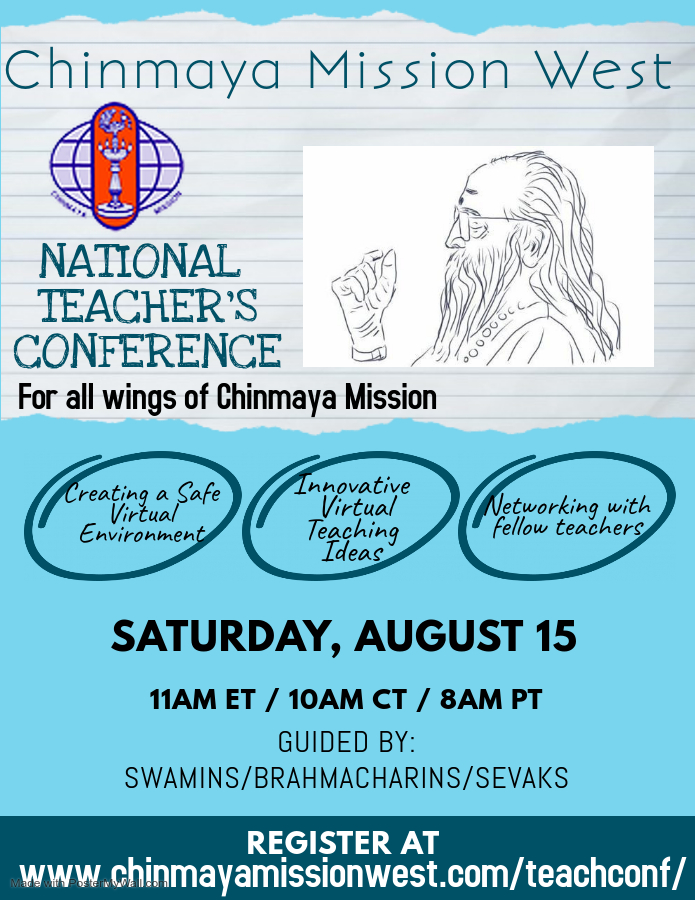Currently we are seeing the true nature and essence of Dharma, the roots of which lie in noble virtues. Today we will be listening to another story. I had told you about a King Prachinbarhi who was extensively engrossed in karmakāṇḍa (Vedic rituals) and when Rishi Narada gave him the knowledge of the Self, he attained liberation. read more …
Author Archives: Web Master
Talk 08
The reflection that we have undertaken until now in relation to Dharma, reveals that various Vedic rituals (karmakāṁḍa), activities and actions are not the essence and not the most important aspect of Dharma. They do have their due place but the soul of Dharma is noble virtues (sadguṇa). read more …
Talk 07
Today we will listen to an interesting story from the 4th canto of the Śrīmad Bhāgavata. The story is very detailed but we will be seeing only some selective portions of it. There was a King named Prachinbarhi and he was an extensive performer of Vedic rituals (karmakāṇḍī). read more …
Talk 06
The very first message that we heard from Sage Shukadeva in this text is of great importance, as it emphasizes that one’s life should be dedicated to spiritual practices (sādhanāmaya) in accordance with the path chosen, be it of knowledge, yoga (aṣṭāṁga yoga), devotion or Dharma. read more …
Talk 05
We have seen two verses of maṅgalācaraṇa and then a brief introduction of the Śrīmad Bhāgavata. After that we have been the blessed recipients of the invitation from Sage Shukadeva to come and drink the Śrīmad Bhāgavata nectar (pibata bhāgavataṁ rasam) which is also the ripened fruit of the Kalpavṛkṣa called Vedas. read more …
National Teachers Conference
On August 15th, 2020, Chinmaya Mission West held an Online National Teachers Conference inaugurated by Pujya Swami Swaroopananda Ji. The conference was guided by CMW President, Swami Shantananda Ji. The training was conducted for all teachers & coordinators of all wings from Shishu Vihar – Vanaprastha and was guided by our very own Swamins/Brahamcharins/Sevaks – over 1700 people attended this conference. During this very unique time, many of our centers will be conducting classes virtually and this forum gave us valuable tools and insights so that we can continue to share the Mission & Vision of Pujya Gurudev whether in person or on-screen.
Key Topics Covered:
Creating a Safe & Secure Virtual Environment
Innovative Virtual Teaching Ideas for each group/wing
Networking with Fellow Teachers
Key Groups & Presenters:
| Zoom Rooms | Presenters |
|---|---|
| Shishu | Swamini Supriyananda (video) & Smt. Vibha Kulkarni |
| Elementary 1 (KG-2nd) | Brni. Shuchita, Brni. Shripriya, Brni. Shubhani |
| Elementary 2 (3rd-5th) | Swami Sharanananda, Brni. Archana |
| Middle (6th-8th) | Brni. Akalka, Br. Hari |
| JCHYK/ High School (9th-12th) | Swami Shivatmananda, Swami Prakashananda, Brni. Krtikaa & Br. Soham |
| BV Coordinators | Swami Shantananda & Sri Ram Ramachandran |
| CHYK | Swami Sarveshananda |
| CSK | Swami Ishwarananda |
| Adult Study Group | Smt. Sharada Kumar, Sri Vijay Kumar, Sri Dhiren Khatri |
| Devi Group | Smt. Vilasini Balakrishnan, Dr. Shashi Dwarakanath |
| Swaranjali | Smt. Rajashri Iyengar & Smt. Meena Shankar |
| Vanaprastha | Sri Mahadevan Parameshwaran & Sri Siva Velu |
| Language | Smt. Poornima Krishnamurthy, Sri Manikandan Somuveerappan & Neil Desai |
| Chanting | Smt. Anjana Suresh & Sri Gopalakrishna |

Talk 04
8th September is an important day for us as it is the birth anniversary (jayaṅti) of Swami Sivananda Maharaj. We offer our prostrations endowed with faith and devotion at the lotus feet of Pujya Swamiji and with His blessings we will further see the introduction of the Śrīmad Bhāgavata. read more …
Talk 03
Who is Lord? He is Pati, Svāmī (protector and master) and now another title has been introduced for the Lord ‘Gatiḥ’. For whom? For the Yadava(Sāttvat), Andhak and Vṛṣṇi clan. Lord Krishna manifested in the Yadava clan, also called the Sāttvat clan as it comprised of the devotees of the Lord. read more …
Talk 02
There are many beautiful verses in the Śrīmad Bhāgavata that can be considered for maṅgalācaraṇa. I had chosen one such verse, from the hymn to the Lord by Dhruvaji, which is in the fourth Canto. read more …
Talk 01
Śrīmad Bhāgavata is a Mahāpurāṇa, in which twelve Cantos (skandha) are there, and each canto has varying number of chapters. Among all the cantos, the second canto is the shortest and the tenth canto is the longest. On the whole, this Mahāpurāṇa comprises of 18,000(Eighteen Thousand) verses. read more …